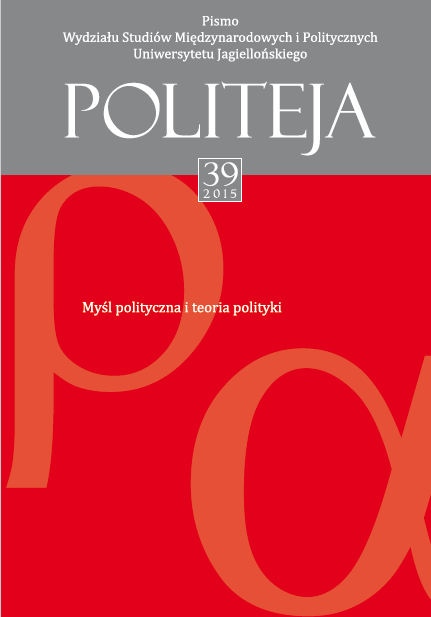Doktryna władzy monarszej Jakuba VI (I) Stuarta
James I Stuart’s theory of the divine right of kings
Author(s): Tomasz TulejskiSubject(s): Politics / Political Sciences
Published by: KSIĘGARNIA AKADEMICKA Sp. z o.o.
Keywords: James I; divine right of kings
Summary/Abstract: The author presents King James I Stuart’s theory of the divine right of kings as the modification of Bodin’s concept of the sovereignty. According to King James, a monarch is subjected to no earthly authority, as he derives his right to rule directly from the will of God. The king is thus not a subject to the will of his people, the aristocracy, or any other estate of the realm, including the Church. This doctrine implies that any attempt to depose a king or to restrict his power is contrary to the will of God and may constitute treason. The author argues, that the theory of the divine right of kings is rooted in the medieval idea that God had bestowed earthly power to the king, just as He had given spiritual power and authority to the Church, centering on a pope and in this way in protestant kingdoms may justifies the king’s absolute authority in both political and spiritual matters. The author points out that it is contrary to Bodin’s theory of sovereignty and he argues that King James’ general statements of divine right should not be read as claims about specific royal powers in any particular kingdom. Unlike the theorists of absolutism, King James thus believed the king to be bound to exercise his authority through defined constitutional channels. Such a requirement went beyond that expected of the absolute monarch, who was to rule well if he were to avoid the charge of tyranny. Finally the author argues, that King James’ theory of power is the attempt of the restoration of Christian uniformity and of the re‑Christianization of Bodin’s concept of the sovereignty.
Journal: Politeja - Pismo Wydziału Studiów Międzynarodowych i Politycznych Uniwersytetu Jagiellońskiego
- Issue Year: 12/2015
- Issue No: 39
- Page Range: 25-50
- Page Count: 26
- Language: Polish

